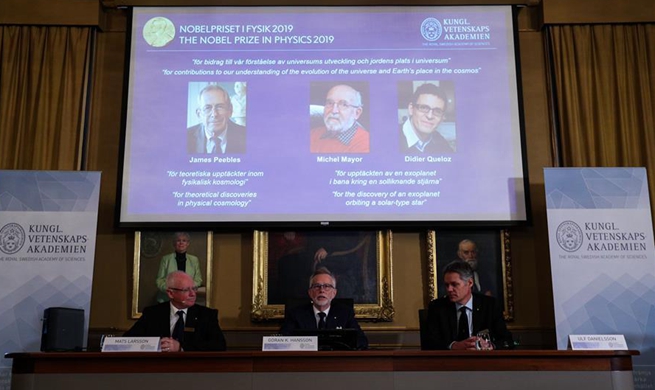CHICAGO, Oct. 8 (Xinhua) -- A stem cell transplant reversed a debilitating neurological disease that causes half of the patients to go blind and lose the ability to walk five years after diagnosis, according to a news release posted on the website of Northwestern University on Monday.
The disease is neuromyelitis optica, formerly classified as a rare subtype of multiple sclerosis (MS) but now considered a separate disease. Unlike MS and most other autoimmune disease, neuromyelitis optica has a biological marker called AQP4 that correlates with disease activity.
In the trial, 12 patients with neuromyelitis optica received the stem cell transplant.
Most of the patients stayed better five years after the transplant and were able to avoid drug treatment that cost up to 500,000 U.S. dollars yearly.
"After five years, only two out of 12 relapsed and had to go back on drug therapy," said lead author Richard Burt, a professor of medicine and chief of immunotherapy and autoimmune disease at Northwestern University Feinberg School of Medicine.
This is the fourth chronic disease hematopoietic stem cell transplantation (HSCT) has appeared to reverse.
"No prior therapy has caused AQP4 to consistently disappear or allowed patients to become treatment free," said Burt. "The transplant improved patients' neurological disability and quality of life. They got better, and the disease maker disappeared for up to five years after transplant."
The study has been published in Neurology.

















